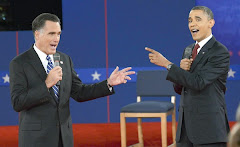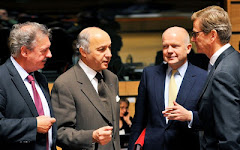By Andrew Quinn and Phil Stewart
WASHINGTON, July 18 (Reuters) - The United States said on Wednesday it was clear that Syrian President Bashar al-Assad was losing control of his country and it urged the international community to get behind a political transition plan to avert a looming sectarian civil war.
The White House, reacting after a Damascus bomb blast that killed Syria's defense minister and Assad's brother-in-law, said the 16-month old Syrian rebellion was gaining momentum and the country's fractured opposition was both strengthening and unifying.
"It's clear that the Assad regime is losing control of Syria. There is real momentum against Assad, with increasing defections, and a strengthened and more united opposition that is operating across the country," White House spokesman Tommy Vietor said in a statement.
Vietor said the international community must work with Syria's opposition to craft a workable transition plan.
"The sooner this transition happens, the greater the chance we have of averting a lengthy and bloody sectarian civil war and the better we'll be able to help Syrians manage a stable transition to democracy," Vietor said.
Defense Secretary Leon Panetta, speaking earlier, said that Syria was lurching into unpredictable territory and underscored that Assad's government would be held responsible if it failed to safeguard its chemical weapons sites.
"This is a situation that is rapidly spinning out of control," Panetta told a Pentagon news conference, adding that the international community needed to "bring maximum pressure on Assad to do what's right, to step down and allow for that peaceful transition."
One European national security official, reflecting the intelligence estimate of Washington and its allies, said that while the deadly bomb blast that wiped out key Syrian security officials was a huge setback for Assad, it was not necessarily a death blow.
RATCHETING UP PRESSURE
The Obama administration has sought to ratchet up international pressure on Assad including at the United Nations Security Council, where Russia and China have thus far blocked efforts to impose harsher measures including sanctions.
The U.N. Security Council delayed until Thursday a proposed vote on a Western-backed resolution that threatens Damascus with sanctions as envoys for the major powers grappled with differences that show little signs of narrowing. .
Facing impasse at the Security Council, the United States and its allies have over months imposed their own sanctions on Damascus, and the U.S. Treasury on Wednesday added 29 Syrian officials to the official U.S. blacklist.
The United States also designated five companies linked to the Syrian government agency responsible for non-conventional weapons programs, and one company controlled by Rami Makhluf, who the Treasury statement called a "corrupt crony" of Assad.
U.S. officials were weighing the latest news from Damascus in light of the rapidly changing situation on the ground, with particular focus on the whereabouts of Syria's chemical weapons arsenal.
Western and Israeli officials have said the Assad government appears to be quietly shifting some chemical weapons from storage sites, but it is not clear whether the operation is merely a security precaution amid Syria's escalating internal conflict.
The Syrian government denies carrying out the operation. Syria's undeclared stockpile -- believed to be the largest of its kind in the Middle East -- has been reported to include sarin nerve agent, mustard gas and cyanide.
"We've made very clear to them that they have a responsibility to safeguard their chemical sites and that we will hold them responsible should anything happen with regards to those sites," Panetta said, adding that the United States was working closely with its allies on the issue.
Syria's spreading carnage has boosted political pressure on Washington to take a stronger stance, although U.S. officials underscore that there is virtually no appetite for potential military intervention.
Senator Lindsey Graham, a Republican member of the Senate Armed Services Committee, told Reuters that the Obama administration was acting like a "deer caught in the headlights" in its response to the Syria crisis and called for tougher measures including arming Syria's rebels and working with allies to create a "no fly, no drive" zone across Syria. (Additional reporting by David Alexander, Matt Spetalnick; Mark Hosenball and Margaret Chadbourne; Editing by Vicki Allen and Cynthia Osterman)
WASHINGTON, July 18 (Reuters) - The United States said on Wednesday it was clear that Syrian President Bashar al-Assad was losing control of his country and it urged the international community to get behind a political transition plan to avert a looming sectarian civil war.
The White House, reacting after a Damascus bomb blast that killed Syria's defense minister and Assad's brother-in-law, said the 16-month old Syrian rebellion was gaining momentum and the country's fractured opposition was both strengthening and unifying.
"It's clear that the Assad regime is losing control of Syria. There is real momentum against Assad, with increasing defections, and a strengthened and more united opposition that is operating across the country," White House spokesman Tommy Vietor said in a statement.
Vietor said the international community must work with Syria's opposition to craft a workable transition plan.
"The sooner this transition happens, the greater the chance we have of averting a lengthy and bloody sectarian civil war and the better we'll be able to help Syrians manage a stable transition to democracy," Vietor said.
Defense Secretary Leon Panetta, speaking earlier, said that Syria was lurching into unpredictable territory and underscored that Assad's government would be held responsible if it failed to safeguard its chemical weapons sites.
"This is a situation that is rapidly spinning out of control," Panetta told a Pentagon news conference, adding that the international community needed to "bring maximum pressure on Assad to do what's right, to step down and allow for that peaceful transition."
One European national security official, reflecting the intelligence estimate of Washington and its allies, said that while the deadly bomb blast that wiped out key Syrian security officials was a huge setback for Assad, it was not necessarily a death blow.
RATCHETING UP PRESSURE
The Obama administration has sought to ratchet up international pressure on Assad including at the United Nations Security Council, where Russia and China have thus far blocked efforts to impose harsher measures including sanctions.
The U.N. Security Council delayed until Thursday a proposed vote on a Western-backed resolution that threatens Damascus with sanctions as envoys for the major powers grappled with differences that show little signs of narrowing. .
Facing impasse at the Security Council, the United States and its allies have over months imposed their own sanctions on Damascus, and the U.S. Treasury on Wednesday added 29 Syrian officials to the official U.S. blacklist.
The United States also designated five companies linked to the Syrian government agency responsible for non-conventional weapons programs, and one company controlled by Rami Makhluf, who the Treasury statement called a "corrupt crony" of Assad.
U.S. officials were weighing the latest news from Damascus in light of the rapidly changing situation on the ground, with particular focus on the whereabouts of Syria's chemical weapons arsenal.
Western and Israeli officials have said the Assad government appears to be quietly shifting some chemical weapons from storage sites, but it is not clear whether the operation is merely a security precaution amid Syria's escalating internal conflict.
The Syrian government denies carrying out the operation. Syria's undeclared stockpile -- believed to be the largest of its kind in the Middle East -- has been reported to include sarin nerve agent, mustard gas and cyanide.
"We've made very clear to them that they have a responsibility to safeguard their chemical sites and that we will hold them responsible should anything happen with regards to those sites," Panetta said, adding that the United States was working closely with its allies on the issue.
Syria's spreading carnage has boosted political pressure on Washington to take a stronger stance, although U.S. officials underscore that there is virtually no appetite for potential military intervention.
Senator Lindsey Graham, a Republican member of the Senate Armed Services Committee, told Reuters that the Obama administration was acting like a "deer caught in the headlights" in its response to the Syria crisis and called for tougher measures including arming Syria's rebels and working with allies to create a "no fly, no drive" zone across Syria. (Additional reporting by David Alexander, Matt Spetalnick; Mark Hosenball and Margaret Chadbourne; Editing by Vicki Allen and Cynthia Osterman)
Edited By Cen Fox Post Team



































